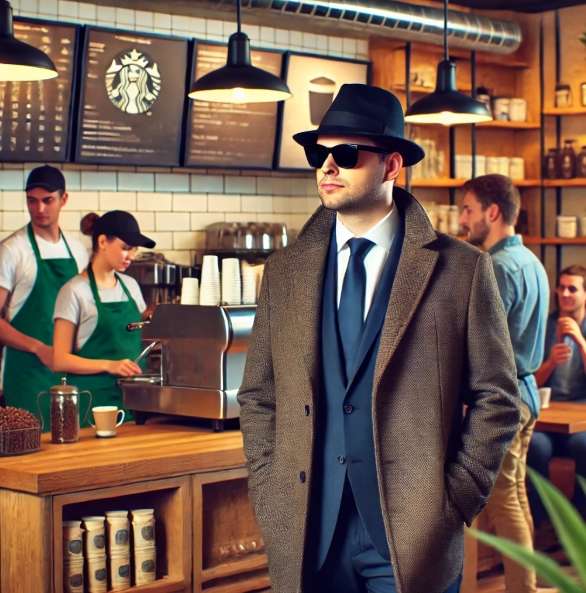Undercover Boss Investigates Coffee Shop Operations
Starbucks, the global coffee giant, is undergoing a significant restructuring aimed at streamlining operations and revitalizing its brand in the face of mounting competition and declining sales. The company recently announced a substantial reduction in its corporate workforce, eliminating 1,100 positions and leaving hundreds of vacancies unfilled. This move, impacting approximately 7% of its corporate staff, marks one of the largest workforce reductions in Starbucks’ history, second only to the 5% cut implemented in 2018. CEO Brian Niccol attributed the decision to the need for eliminating redundancies and enhancing efficiency within the organization, emphasizing the importance of these changes for the company’s future success. This restructuring comes as Starbucks grapples with four consecutive quarters of declining sales, culminating in a 4% drop in the final quarter of 2023. The company aims to navigate the challenges posed by emerging competitors, address customer concerns about long wait times, and refine its approach to balancing personalized beverage customization with efficient service delivery.
The restructuring efforts extend beyond personnel reductions. Starbucks has also undertaken a menu simplification initiative, removing 17 items to streamline operations and expedite service. The company contends that these cuts, focused solely on corporate roles, will not affect in-store employees, roasters, or warehouse staff. This strategic move aims to address the common complaint of slow service at Starbucks locations, a factor potentially contributing to the company’s recent sales decline. The company has also reintroduced self-service condiment bars for milk and sweeteners, a move intended to further streamline the customer experience and potentially reduce wait times.
While facing operational challenges, Starbucks has seen its stock value appreciate by nearly 17% over the past year. This seemingly paradoxical situation suggests that investors maintain confidence in the company’s long-term prospects, possibly influenced by Niccol’s leadership and the ongoing restructuring efforts. Brought in after the less successful tenure of Laxman Narasimhan, Niccol, known for his successful turnaround of Chipotle, carries a reputation for effective leadership and strategic decision-making. His compensation package, while appearing modest at a base salary of $1.6 million, could potentially reach $23 million with the inclusion of bonuses and stock options.
Niccol’s leadership style emphasizes a hands-on approach. He is reportedly permitted to work remotely from his California residence, utilizing a company plane for travel to Starbucks headquarters in Seattle. This arrangement allows for flexibility while maintaining connectivity with the company’s core operations. Beyond the workforce and menu adjustments, Niccol has implemented other significant changes, including limiting special discounts and promotional menu items. This approach aims to maintain profitability and potentially streamline operations by reducing complexity.
One of the more controversial changes implemented under Niccol’s leadership is the policy prohibiting customers from occupying store space without making a purchase. While not explicitly targeting the homeless population, this policy effectively restricts their ability to use Starbucks locations as a refuge, a practice that had become common in some urban areas. This policy has sparked debate, with some criticizing it for potentially exacerbating the challenges faced by vulnerable populations, while others argue that it is necessary to maintain order and ensure a positive experience for paying customers. This policy change underscores the challenges businesses face in balancing social responsibility with operational efficiency.
Niccol’s commitment to understanding the customer experience firsthand is evident in his reported practice of visiting Starbucks stores incognito. This allows him to observe operations from a customer’s perspective, gaining insights into potential areas for improvement. Following these undercover visits, Niccol has pledged to enhance service speed and restore the traditional coffeehouse ambiance that has long been a hallmark of the Starbucks brand. This focus on customer experience, coupled with the broader restructuring efforts, suggests a concerted effort to revitalize the brand and regain its competitive edge in a rapidly evolving market. The combined impact of these changes will ultimately determine whether Starbucks can successfully navigate these challenges and return to a trajectory of sustained growth.
Share this content:












Post Comment